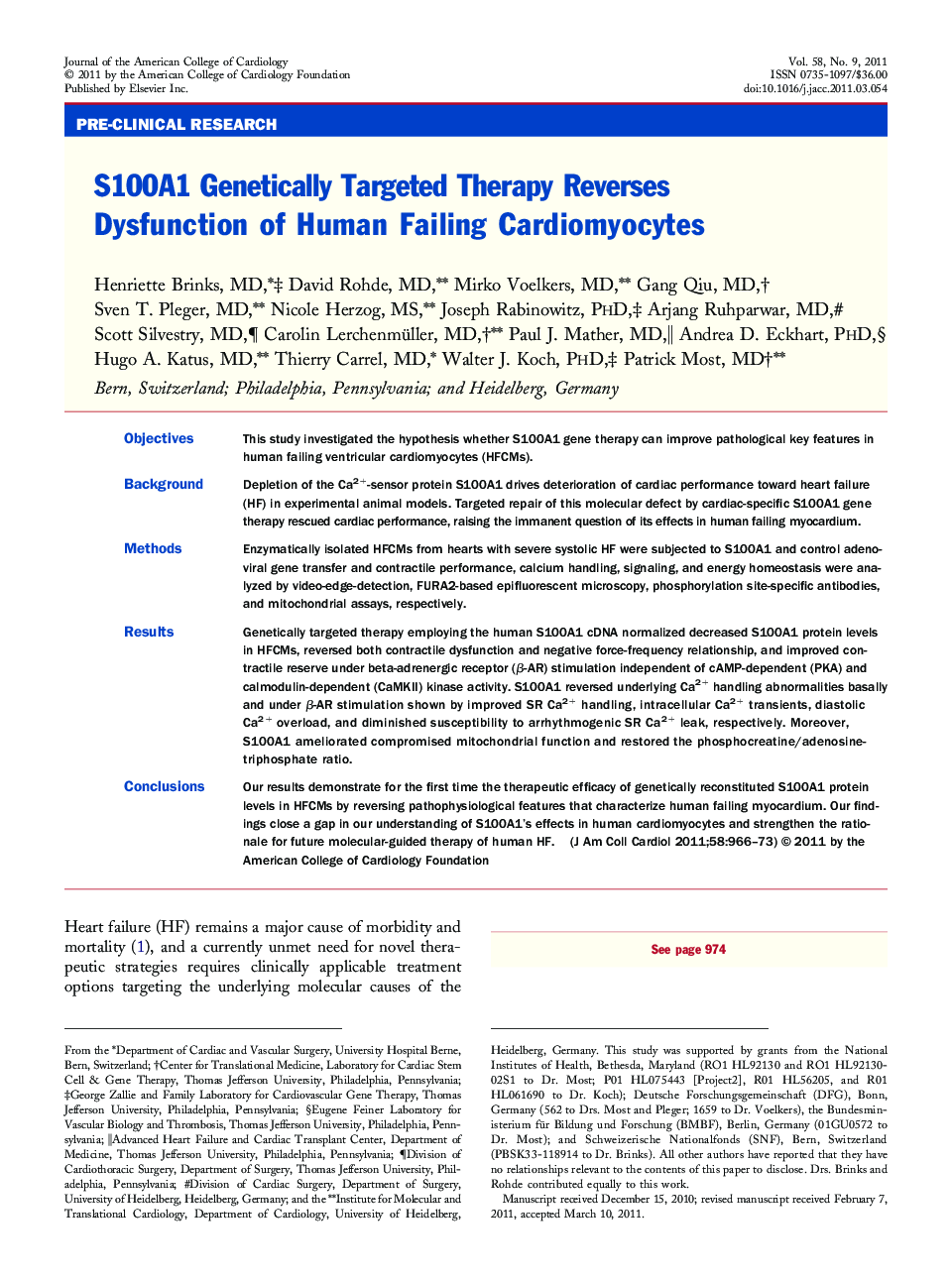| کد مقاله | کد نشریه | سال انتشار | مقاله انگلیسی | نسخه تمام متن |
|---|---|---|---|---|
| 2948055 | 1577250 | 2011 | 8 صفحه PDF | دانلود رایگان |

ObjectivesThis study investigated the hypothesis whether S100A1 gene therapy can improve pathological key features in human failing ventricular cardiomyocytes (HFCMs).BackgroundDepletion of the Ca2+-sensor protein S100A1 drives deterioration of cardiac performance toward heart failure (HF) in experimental animal models. Targeted repair of this molecular defect by cardiac-specific S100A1 gene therapy rescued cardiac performance, raising the immanent question of its effects in human failing myocardium.MethodsEnzymatically isolated HFCMs from hearts with severe systolic HF were subjected to S100A1 and control adenoviral gene transfer and contractile performance, calcium handling, signaling, and energy homeostasis were analyzed by video-edge-detection, FURA2-based epifluorescent microscopy, phosphorylation site-specific antibodies, and mitochondrial assays, respectively.ResultsGenetically targeted therapy employing the human S100A1 cDNA normalized decreased S100A1 protein levels in HFCMs, reversed both contractile dysfunction and negative force-frequency relationship, and improved contractile reserve under beta-adrenergic receptor (β-AR) stimulation independent of cAMP-dependent (PKA) and calmodulin-dependent (CaMKII) kinase activity. S100A1 reversed underlying Ca2+ handling abnormalities basally and under β-AR stimulation shown by improved SR Ca2+ handling, intracellular Ca2+ transients, diastolic Ca2+ overload, and diminished susceptibility to arrhythmogenic SR Ca2+ leak, respectively. Moreover, S100A1 ameliorated compromised mitochondrial function and restored the phosphocreatine/adenosine-triphosphate ratio.ConclusionsOur results demonstrate for the first time the therapeutic efficacy of genetically reconstituted S100A1 protein levels in HFCMs by reversing pathophysiological features that characterize human failing myocardium. Our findings close a gap in our understanding of S100A1's effects in human cardiomyocytes and strengthen the rationale for future molecular-guided therapy of human HF.
Journal: Journal of the American College of Cardiology - Volume 58, Issue 9, 23 August 2011, Pages 966–973